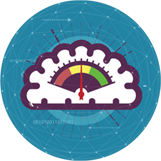(2014). Adaptive top-down suppression of hippocampal activity and the purging of intrusive memories from consciousness. Journal of Cognitive Neuroscience, 27(1), 96-111.
Abstract: When reminded of unwanted memories, people often attempt to suppress these experiences from awareness. Prior work indicates that control processes mediated by the dorsolateral prefrontal cortex (DLPFC) modulate hippocampal activity during such retrieval suppression. It remains unknown whether this modulation plays a role in purging an intrusive memory from consciousness. Here, we combined fMRI and effective connectivity analyses with phenomenological reports to scrutinize a role for adaptive top–down suppression of hippocampal retrieval processes in terminating mnemonic awareness of intrusive memories. Participants either suppressed or recalled memories of pictures depicting faces or places. After each trial, they reported their success at regulating awareness of the memory. DLPFC activation was greatest when unwanted memories intruded into consciousness and needed to be purged, and this increased engagement predicted superior control of intrusive memories over time. However, hippocampal activity was decreased during the suppression of place memories only. Importantly, the inhibitory influence of the DLPFC on the hippocampus was linked to the ensuing reduction in intrusions of the suppressed memories. Individuals who exhibited negative top–down coupling during early suppression attempts experienced fewer involuntary memory intrusions later on. Over repeated suppressions, the DLPFC–hippocampus connectivity grew less negative with the degree that they no longer had to purge unwanted memories from awareness. These findings support a role of DLPFC in countermanding the unfolding recollection of an unwanted memory via the suppression of hippocampal processing, a mechanism that may contribute to adaptation in the aftermath of traumatic experiences. »PDF
